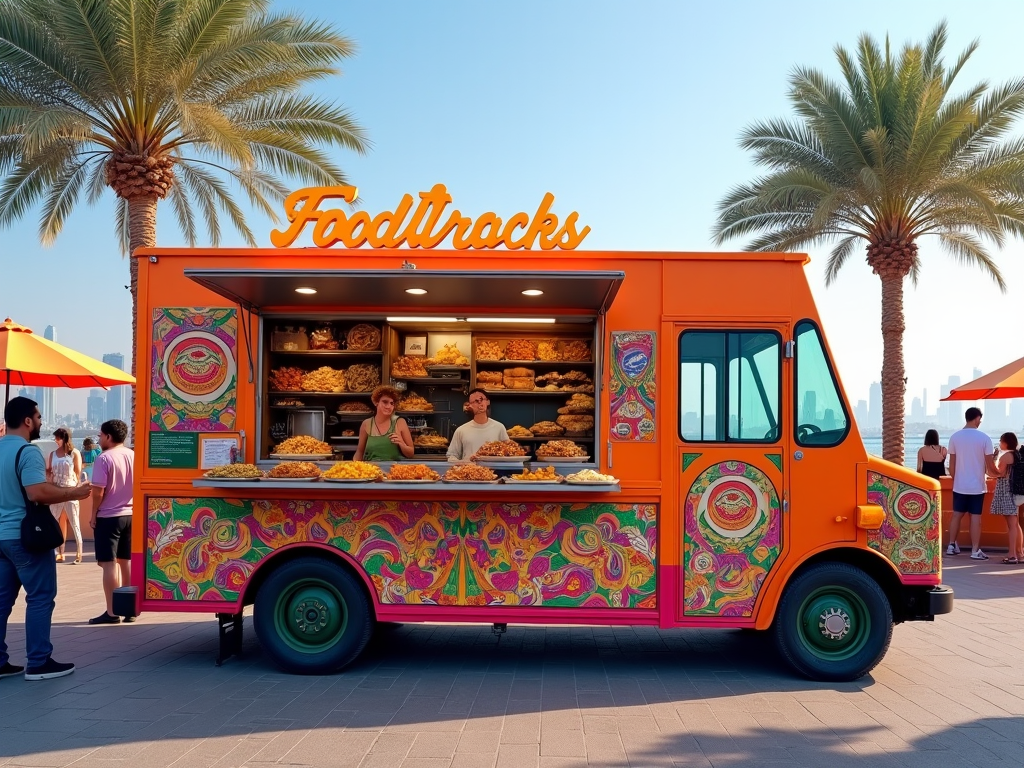
Establishing a Food and Beverage (F&B) business in Dubai can be a lucrative venture due to its diverse population and thriving tourism industry. This article provides a comprehensive guide on the steps you need to follow to successfully start your F&B business in this vibrant city. From understanding regulatory requirements to selecting a location and developing a solid marketing strategy, you’ll find helpful information to ensure your business thrives in Dubai’s competitive market.
Understanding the Legal Requirements

Before launching your F&B business in Dubai, it’s vital to familiarize yourself with the emirate’s legal framework. The Department of Economic Development (DED) requires an entrepreneur to register their business and obtain a trade license. This process usually involves several steps:
- Choose a Business Activity: Determine the specific type of F&B service you wish to offer, whether it’s a restaurant, café, or food truck.
- Trade Name Registration: Propose a unique name for your business and get it approved by the DED.
- Obtain Initial Approval: After name approval, apply for initial approval from the DED.
- Secure Relevant Permits: You might need additional permits from the Food Control Department and other regulatory bodies depending on your business type.
- Complete Licensing: Submit all documents and obtain your final trade license before commencing operations.
It’s essential to consult with a local expert or legal advisor to navigate these requirements efficiently and avoid potential pitfalls.
Conducting Market Research

Market research is a crucial step in ensuring the sustainability and growth of your F&B business. Understanding the preferences and tastes of your target audience can significantly impact your venture’s success. Consider the following approaches in your market analysis:
- Demographic Research: Identify the demographics of your potential customers, such as age, income level, and cultural backgrounds. This information will help tailor your offerings to meet their preferences.
- Competitor Analysis: Study competitors in your chosen niche. Evaluate their menu options, pricing strategies, and customer experience to find gaps and opportunities.
- Trends and Preferences: Stay updated on the latest food trends and dining preferences within Dubai to ensure your offerings remain relevant and appealing.
- Location Analysis: Assess potential business locations by analyzing foot traffic, nearby competition, and target demographic concentrations.
Detailed market research will not only help in decision-making but also provide a solid foundation for your business plan, ensuring you address customer needs effectively.
Setting Up Your Business Location
Selecting the right location for your F&B business is crucial for attracting customers and driving sales. Ideally, you want to choose a location that maximizes visibility and footfall. Here are some factors to consider when selecting your business location:
- Accessibility: Ensure your location is easily accessible by public transport and has ample parking for customers. This can encourage more foot traffic to your establishment.
- Proximity to Competitors: While a nearby competitor isn’t necessarily a bad thing, you want to be in a location that allows you to stand out in the crowd.
- Physical Space: Consider the size and layout of the premises. Your establishment should comfortably accommodate your desired number of customers and have adequate kitchen space.
- Costs and Leases: Understand the leasing costs associated with your location and ensure they align with your budget before committing.
Carefully selecting your location can significantly contribute to the success of your F&B business, making it critical to invest adequate time in this decision.
Developing a Strong Business Plan
A well-structured business plan serves as a roadmap for your F&B business, guiding your strategy and operations. It should include the following elements:
- Executive Summary: An overview of your business concept, goals, and strategies.
- Market Analysis: Insights from your market research that support your business’ viability.
- Marketing Strategy: Outline your promotional strategies to attract customers, including social media, partnerships, and local advertising.
- Financial Projections: Include forecasts for revenue, expenses, and profits over a specified period, ensuring your figures are realistic.
- Operational Plan: Detail the day-to-day operations, staffing, supply chain management, and production processes.
This plan can also serve as a critical document when seeking investment or financing from banks and investors, showcasing your preparedness and credibility as an entrepreneur.
Conclusion
Starting an F&B business in Dubai offers excellent opportunities, but it requires careful planning, legal compliance, and a thorough understanding of the local market. By following the outlined steps from understanding legal requirements to crafting a robust business plan, you can set yourself up for success in this dynamic industry. Remember to continuously adapt to market trends and customer preferences to ensure longevity and profitability.
Frequently Asked Questions
- What are the costs involved in starting an F&B business in Dubai?
The costs can vary widely based on location, type of business, and scale of operations. On average, owners should budget for licensing, rent, equipment, and initial operational costs, which can total anywhere from AED 50,000 to several millions. - Is it necessary to have prior experience in F&B to start a business?
While prior experience can be beneficial, it is not mandatory. However, having a solid understanding of the industry, either through experience or comprehensive research, can significantly increase your chances of success. - How long does it take to get a trade license in Dubai?
The entire process can take anywhere from a few weeks to several months, depending on the type of business and the complexity of licenses required. It’s advisable to start the process early to avoid delays. - What are the popular types of F&B businesses in Dubai?
Popular F&B business formats in Dubai include fine dining restaurants, casual eateries, cafés, food trucks, and delivery-only kitchens, each catering to different market segments. - Can I franchise an F&B business in Dubai?
Yes, franchising is a common practice in Dubai’s F&B sector. If you choose to go this route, ensure you thoroughly understand the franchise laws and agreements to establish a successful partnership.





